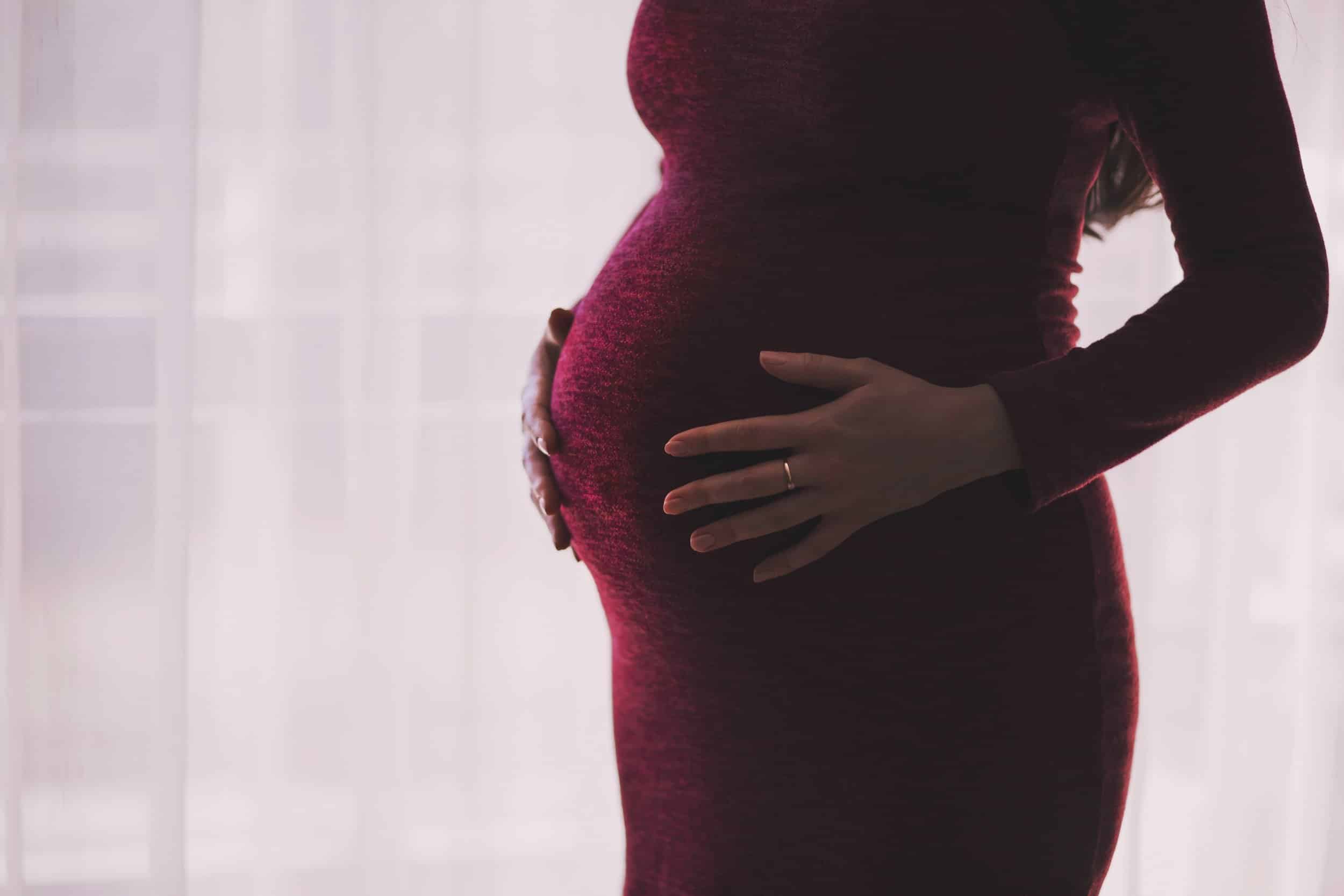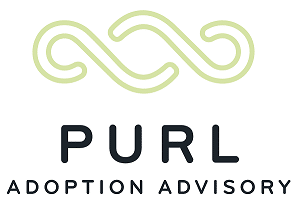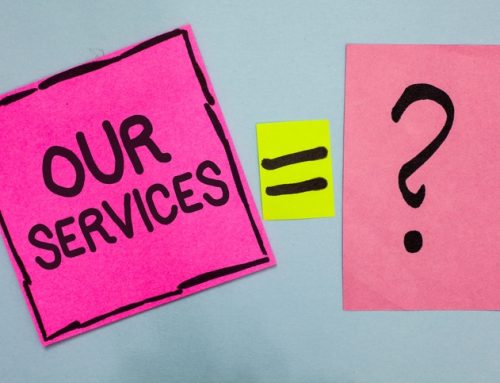
I’ve heard of a few circumstances lately where prospective adoptive parents act entitled to the child they have been chosen for, both before and after the birth of the child, but before consents are signed. This is one area I feel like prospective adoptive parents pursuing domestic infant adoption need the most education on – the respect and love that is required for any expectant mother they come into contact with in their adoption journey, and ultimately for the birth mother for their child.*
A woman that has not signed consents to an adoption is considered an expectant mother and is the ONLY mother to the child at that point. It doesn’t matter if a woman has chosen you as adoptive parents for her child, and it does not matter if you have paid living expenses for her during her pregnancy. She still has the right to parent her child once the baby is born, and that is a real risk in adoption – both a financial and an emotional risk. The difficulty in making a decision to place her child for adoption may make her change her mind last minute about the amount of openness she wants or she may show doubt in her plan, but prospective adoptive parents need to have empathy and compassion for her, particularly considering the magnitude of this decision.
You also need to respect the circumstances that the expectant mother is in that is causing her to even consider making an adoption plan, even if you can’t understand them or relate to them. Many women facing an unplanned pregnancy are experiencing some type of chaos or crisis. That looks completely different for each adoption opportunity we see, the crisis could be homelessness, poverty, addiction, incarceration, she could be a victim of domestic violence, she could have previous interaction with the state foster care system or the child could be the result of rape or infidelity. It could be that the expectant mother is a teenager, just started college, just starting her career, doesn’t want kids, already has grown kids, or didn’t even know she was pregnant – but in most cases the timing of the pregnancy is difficult for her current stage of her life. The woman’s maturity, beliefs, support, financial situation, personal goals and personal difficulties all come into play in the decision to make and follow through with an adoption plan.
It doesn’t matter if you think you might be more prepared than she is for this child, that you might have more resources, that you might have taken care of yourself differently or better during pregnancy, or that she CHOSE you. The child is HERS until she makes the difficult decision to place her child in the arms of the adoptive parents she’s chosen. If she is able to parent this child, you have to celebrate and honor that, even if it is one of the most difficult things you have ever done in your life.
No matter what, she is likely in circumstances very different from yours as prospective adoptive parents. She likely hasn’t experienced the infertility or loss that you have, she might not have had the resources, education or support that you have had in your life, but that does not mean she doesn’t want or love this child and doesn’t deserve your respect. If you are hoping to adopt, you must try and empathize with the circumstances she is in and support her through what will likely be the hardest decision of her life, even if she ultimately decides to parent and this becomes just another loss you suffer. If she does choose to place her child with you, this woman will likely be an important figure in your life forever, no matter how much contact you have with her in your adoption. Your child through adoption will likely long for her and the connection with her at some point in their lives. You should always speak about her and her decision with respect to your child, even if the circumstances were not all pretty. There will likely be some point in your life as a parent that you will be sticking up for her (while still protecting her story), even to your family but also to perfect strangers asking ridiculously personal questions. It is your job to try and make your child as whole as they can be even though they were separated from their birth mother, what is considered to be a “primal wound”. You need to make sure your child knows where they came from and how much love their birth mother must have had to make such a huge sacrifice for them, no matter the circumstances. Please try and put aside all that you are going through in this journey, all the pain you might have experienced with infertility and loss, and understand that no matter what, these women deserve to always be treated with respect, both before and after they make a decision on their adoption plan. If she chooses to parent, it just means that child wasn’t yours, and you need to try survive one (or two or three) more challenges before you find the child meant for your arms.
* Obviously this same concept applies to expectant fathers and birth fathers as well, as many are involved in the adoption plan and the decision is equally as difficult for them. We are just focusing on the expectant mother in this piece.

I’ve heard of a few circumstances lately where prospective adoptive parents act entitled to the child they have been chosen for, both before and after the birth of the child, but before consents are signed. This is one area I feel like prospective adoptive parents pursuing domestic infant adoption need the most education on – the respect and love that is required for any expectant mother they come into contact with in their adoption journey, and ultimately for the birth mother for their child.*
A woman that has not signed consents to an adoption is considered an expectant mother and is the ONLY mother to the child at that point. It doesn’t matter if a woman has chosen you as adoptive parents for her child, and it does not matter if you have paid living expenses for her during her pregnancy. She still has the right to parent her child once the baby is born, and that is a real risk in adoption – both a financial and an emotional risk. The difficulty in making a decision to place her child for adoption may make her change her mind last minute about the amount of openness she wants or she may show doubt in her plan, but prospective adoptive parents need to have empathy and compassion for her, particularly considering the magnitude of this decision.
You also need to respect the circumstances that the expectant mother is in that is causing her to even consider making an adoption plan, even if you can’t understand them or relate to them. Many women facing an unplanned pregnancy are experiencing some type of chaos or crisis. That looks completely different for each adoption opportunity we see, the crisis could be homelessness, poverty, addiction, incarceration, she could be a victim of domestic violence, she could have previous interaction with the state foster care system or the child could be the result of rape or infidelity. It could be that the expectant mother is a teenager, just started college, just starting her career, doesn’t want kids, already has grown kids, or didn’t even know she was pregnant – but in most cases the timing of the pregnancy is difficult for her current stage of her life. The woman’s maturity, beliefs, support, financial situation, personal goals and personal difficulties all come into play in the decision to make and follow through with an adoption plan.
It doesn’t matter if you think you might be more prepared than she is for this child, that you might have more resources, that you might have taken care of yourself differently or better during pregnancy, or that she CHOSE you. The child is HERS until she makes the difficult decision to place her child in the arms of the adoptive parents she’s chosen. If she is able to parent this child, you have to celebrate and honor that, even if it is one of the most difficult things you have ever done in your life.
No matter what, she is likely in circumstances very different from yours as prospective adoptive parents. She likely hasn’t experienced the infertility or loss that you have, she might not have had the resources, education or support that you have had in your life, but that does not mean she doesn’t want or love this child and doesn’t deserve your respect. If you are hoping to adopt, you must try and empathize with the circumstances she is in and support her through what will likely be the hardest decision of her life, even if she ultimately decides to parent and this becomes just another loss you suffer. If she does choose to place her child with you, this woman will likely be an important figure in your life forever, no matter how much contact you have with her in your adoption. Your child through adoption will likely long for her and the connection with her at some point in their lives. You should always speak about her and her decision with respect to your child, even if the circumstances were not all pretty. There will likely be some point in your life as a parent that you will be sticking up for her (while still protecting her story), even to your family but also to perfect strangers asking ridiculously personal questions. It is your job to try and make your child as whole as they can be even though they were separated from their birth mother, what is considered to be a “primal wound”. You need to make sure your child knows where they came from and how much love their birth mother must have had to make such a huge sacrifice for them, no matter the circumstances. Please try and put aside all that you are going through in this journey, all the pain you might have experienced with infertility and loss, and understand that no matter what, these women deserve to always be treated with respect, both before and after they make a decision on their adoption plan. If she chooses to parent, it just means that child wasn’t yours, and you need to try survive one (or two or three) more challenges before you find the child meant for your arms.
* Obviously this same concept applies to expectant fathers and birth fathers as well, as many are involved in the adoption plan and the decision is equally as difficult for them. We are just focusing on the expectant mother in this piece.



